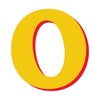George Hincapie was one of the peloton’s most respected riders—and Lance’s dominant domestique. But when he had to testify before the U.S. Anti-Doping Agency, he faced a brutal choice: Speak out about Lance and his own past or quit the sport altogether. In this extended interview, Hincapie reveals what it felt like to dish on Lance and why he chose to stop doping.
OUTSIDE: You were much more than a domestique, yet many fans of the sport use that word to describe you. How does that make you feel?
HINCAPIE: Being called a domestique is not a bad thing. A top domestique at the Pro Tour level is a very difficult job. It requires a ton of focus and coping with a lot of pressure. Your teammates rely on you every day. To be considered a good domestique is an honor for me.
You seem to excel most in helping others succeed. Did that hurt your own career?
I might have lost out on some successes because of that, but I also gained a lot of success by helping the team win races. Whether it was Lance or Kevin, Cadel or T.J., some of the best riders in the world today, I was able to help them succeed, and that was very gratifying to me.
Were you concerned about being unable to compete after you stopped doping?
When I made that decision, my concern was to get to as many people as possible in the peloton to stop doping and to stay in the sport for as long as possible. My initial concerns had nothing to do with results.
You mention that Floyd Landis mocked the peloton and had no intention of racing clean. How do you draw the line between the ethics of his doping and Lance’s? Or his doping and your own?
Really, there isn’t a line to draw. We were all wrong. We all crossed the line. Whether we did it later on in our careers, or longer than other people, or took more drugs than other people, if you cross the line you cross the line.
You take time to dismantle USADA’s argument that the U.S. Postal Team had the most sophisticated doping program sport had ever seen. Why is that so important to address?
I think USADA did their job investigating our team. But I do feel that their statement was inaccurate. They didn’t investigate other teams as thoroughly as they investigated ours. I lived that life. I was there. I observed the riders around me. I observed the teams around me, and I saw many things that indicate that statement to be incorrect.
How helpful is it to focus on cycling’s dirty past?
I feel like the focus should be on how much the sport has changed, how over the last seven, eight, nine years, riders have been winning races clean, and I witnessed that first-hand.
Did those who testified before USADA get off too easy and was Lance punished too severely?
That’s not a question for me to answer. I don’t expect anyone to feel sorry for me. It was very difficult for myself and my family. Hopefully, people will see what I’m doing for the sport now through my development team and through certain charities that I work with. I am still trying to promote this sport in a positive way, and I hope to have this sport in my life for the rest of my days.
What’s it been like to view the sport from the outside?
Like I write in my book, I’ve seen a lot of change in cycling while I was still racing. I know cycling has suffered through the recent decision. Sponsorship is probably down, and people are probably hesitant to get back into the sport, but I hope through this book they’ll see that it is truly a different sport now. The majority of the sport is clean now.
How far has cycling come in the fight on doping?
I think it’s come a long way. The culture of the riders has changed. It is no longer accepted.

